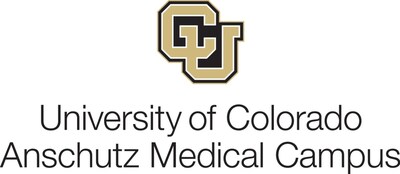Five University of Colorado Cancer Center Advancements That Changed the Game for Patients
As the CU Cancer Center celebrates its 40th anniversary, here are five ways it helped to change detection and treatment of the disease.
AURORA, Colo., June 24, 2025 /PRNewswire/ -- The University of Colorado Cancer Center this year celebrates its 40th anniversary, highlighting significant advances in research and innovations that include new therapies, treatments and insights into cancer prevention.
"For 40 years, the CU Cancer Center has been the cornerstone of cancer research, innovation and care in Colorado and the Rocky Mountain region," says CU Anschutz Chancellor Donald Elliman. "We're not only delivering world-class care today – we're bringing new possibilities into reach and redefining the cancer treatment of the future."
The CU Cancer Center, founded in 1985, became a National Cancer Institute-designated cancer center in 1988 under the leadership of its founding director, Paul Bunn, MD. In 1997, it had the further distinction of being named one of 57 NCI Comprehensive Cancer Centers. The "comprehensive" designation recognizes the center's strengths in basic, translational, clinical and population science research, as well as leadership and resources devoted to community outreach and engagement and cancer research training and education.
Here are five innovations that helped make the CU Cancer Center part of the worldwide cancer conversation.
Multidisciplinary clinics
It can take an army of specialists to treat a cancer patient, and in the early days of the CU Cancer Center, that meant multiple appointments on multiple days with specialists who may or may not have been aligned on a treatment plan.
That changed in 2012, when Richard Schulick, MD, MBA, became chair of the CU Department of Surgery. Schulick brought with him the concept of a multidisciplinary clinic for pancreatic and biliary cancers in which a patient comes in for one day and is seen by multiple specialists — including surgical oncologists, medical oncologists, radiation oncologists, pathologists, dietitians and genetic counselors. They then meet that same day to develop a comprehensive treatment plan.
When Schulick became director of the CU Cancer Center in 2018, he expanded the multidisciplinary clinics. There are now clinics for 12 types of cancer.
"It was incredible to suddenly have all these doctors come together to give me answers," says patient Val Beck, who was treated for colorectal cancer at the CU Cancer Center in 2023. "They never lied to me. They told me that my type of cancer was scary, and they said it was going to be hard. But they also said they were going to ensure I received the best treatment possible."
A new treatment for acute myeloid leukemia
Thanks in large part to early work by CU Cancer Center researchers Craig Jordan, PhD, and Daniel Pollyea, MD, MS, patients with the blood cancers acute myeloid leukemia (AML) and myelodysplastic syndrome have a new treatment option that has fewer side effects and has been shown to increase longevity.
In 2020, the Food and Drug Administration granted regular approval to the drug venetoclax (Venclexta), in combination with a low-dose chemotherapy treatment, for the treatment of AML in older adults who are unfit for intensive chemotherapy.
The drug works by targeting and inhibiting the Bcl-2 protein, a key component of leukemia stem cells. Of 31 evaluable patients treated with venetoclax in a 2018 clinical trial conducted by Pollyea and Jordan, 20 experienced complete remission, while eight had a complete response but with continued low blood counts.
The FDA granted the drug preliminary approval based on those clinical trials and a subsequent randomized study. Pollyea and Jordan still are researching the drug to determine how it could be even more effective, including new and upcoming studies on its effects in younger populations as well as research to tackle both upfront and post-treatment resistance.
"Some of our hypotheses about how we could use venetoclax weren't necessarily part of the conventional wisdom five years ago," Pollyea says. "It's exciting to see how many of our theories were correct, and to see how others in the hematology community have built out parts of the story that are very complementary and exciting. We're all learning from each other."
Lowering the screening age for colorectal cancer
After an alarming rise in colorectal cancer in people younger than 50, the United States Preventive Services Task Force in 2021 lowered the recommended screening age for the cancer from 50 to 45 for people at normal risk. One of the key figures behind the move was Andrea Dwyer, program director of the Colorado Cancer Screening Program at the CU Cancer Center, who worked alongside the American Cancer Society to expand the screening population.
"The change in the guideline is going to take several years to fully catch on with people in the way we need it to, but we're already starting to see some people start their screening at age 45," Dwyer says. "We still have a lot of work to do on awareness of the need to start screening earlier. Colorectal cancer does happen among young adults, even teenagers, and we don't know why."
Cell-based immune therapies
Though many cancers are still effectively treated with chemotherapy and radiation, some cancers — especially blood cancers — have seen a revolution with treatments using the patient's own immune cells to attack cancer cells. The CU Cancer Center is at the forefront of this evolving science.
Tumor-infiltrating lymphocyte therapy, for example — which is being studied by CU Cancer Center researchers including Eduardo Davila, PhD — involves surgically removing tumor tissue from a patient's body and extracting activated T cells from the tissue. The cells are multiplied in the lab, then reinfused into the patient's body to attack tumors.
The CU Cancer Center also is a national leader in chimeric antigen receptor T cell (CAR T) therapy, a powerful treatment in which a patient's immune cells are removed from their body, taken to a lab and genetically engineered to become fighter cells, then injected back into the patient, where they seek out and destroy cancer cells.
One of the leaders in this effort is CU Cancer Center member Terry Fry, MD, executive director of the Gates Institute, a translational research institute on the CU Anschutz Medical Campus that produces CAR T and other cellular therapies for research. Gates recently launched a clinical trial of a CAR for pediatric patients with relapsed or refractory pre B-cell acute lymphoblastic leukemia (B-ALL).
Elsewhere on campus, M. Eric Kohler, MD, PhD, and Catherine Danis, PhD, recently published research on a next-generation CAR T therapy called ALA-CART (adjunctive LAT-activating CAR-T cells), which optimizes CAR-T cells to more effectively eliminate cancer cells, including those that have been able to hide from traditional CAR-T cells.
The therapy also is being studied at the Flint Animal Cancer Center at Colorado State University, one of the CU Cancer Center's clinical partners. A trial launched in 2023 at Flint is testing the effectiveness of CAR T treatment on naturally occurring osteosarcoma in pet dogs.
"These are cells that can potentially live in your body for months or even years," says Steven Dow, DVM, PhD, "The cells eradicate the cancerous tumor with the aim to make sure it doesn't recur."
Testing for gene mutations in lung cancer
Not all lung cancers are created equal, and researchers at the CU Cancer Center's Thoracic Oncology Research Initiative helped to pioneer the practice of testing for genetic mutations within lung cancer cells to determine which patients are likely to respond to specific medications — in some cases a single daily oral medication that allows someone diagnosed with lung cancer to enjoy a better quality of life.
Research into fusions and mutations by CU Cancer Center members Robert Doebele, MD, PhD, Marileila Garcia, PhD, and D. Ross Camidge, MD — as well as early research in the field by Paul Bunn, MD, the cancer center's first director — has helped thousands of lung cancer patients worldwide.
"We're fortunate that in Colorado, we were one of the early adopters of doing routine molecular testing of our lung cancer patients, to put them into different buckets based on the mutations in their cancer," Camidge says. "That allowed us to say, 'OK, there are five people in front of us, and they all have lung cancer, but really, they have different subtypes of lung cancer, and they need different treatments.' When you personalize that treatment, you start to really get transformative control of the cancer."
About the University of Colorado Anschutz Medical Campus
The University of Colorado Anschutz Medical Campus is a world-class medical destination at the forefront of transformative science, medicine, education and patient care. The campus encompasses the University of Colorado health professional schools, more than 60 centers and institutes, and two nationally ranked independent hospitals - UCHealth University of Colorado Hospital and Children's Hospital Colorado - that treat more than two million adult and pediatric patients each year. Innovative, interconnected and highly collaborative, the University of Colorado Anschutz Medical Campus delivers life-changing treatments, patient care and professional training and conducts world-renowned research fueled by over $705 million in research grants. For more information, visit www.cuanschutz.edu.
Contact: Laura Kelley, University of Colorado Anschutz Medical Campus laura.kelley@cuanschuz.edu
![]() View original content to download multimedia:https://www.prnewswire.com/news-releases/five-university-of-colorado-cancer-center-advancements-that-changed-the-game-for-patients-302490063.html
View original content to download multimedia:https://www.prnewswire.com/news-releases/five-university-of-colorado-cancer-center-advancements-that-changed-the-game-for-patients-302490063.html
SOURCE University of Colorado Anschutz Medical Campus





